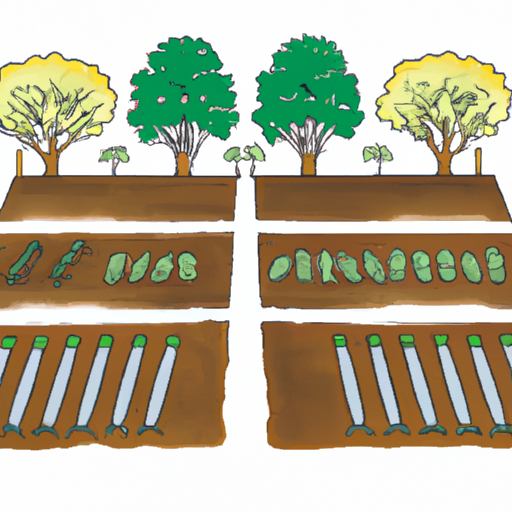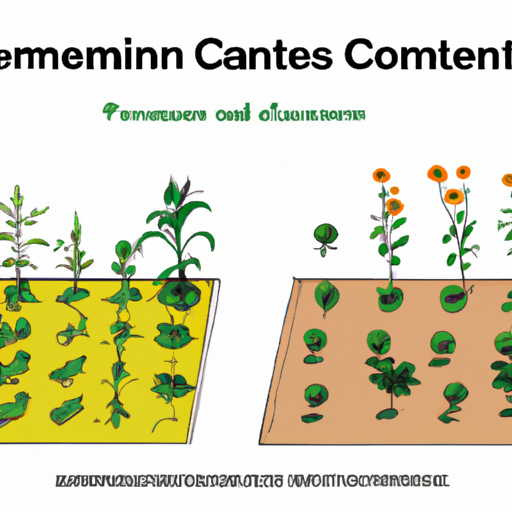GardenGuru123
I learned so much about companion planting and can't wait to try it in my garden.

One of the key benefits of companion planting is natural pest control. By interplanting certain species, you can repel harmful insects and attract beneficial ones. For example, planting marigolds alongside tomatoes can help deter nematodes and other pests.
Companion planting can also improve soil health by enhancing nutrient uptake and reducing soil erosion. Legumes, such as beans and peas, are known for their ability to fix nitrogen in the soil, benefiting neighboring plants that require this essential nutrient.
When plants are strategically paired together, they can complement each other's growth patterns and nutrient needs, leading to increased crop yields. For instance, planting corn with beans can result in higher productivity as the beans provide nitrogen to the corn.
Certain companion plants can enhance the flavor and aroma of neighboring crops. For example, growing basil near tomatoes can improve the taste of the tomatoes, while also deterring pests that are repelled by the strong scent of basil.
Companion planting promotes biodiversity in the garden, creating a more resilient ecosystem. By cultivating a variety of plant species, you can attract beneficial insects, improve pollination, and create a balanced environment that is less susceptible to diseases.

| Companion Plants | Benefit | Example |
|---|---|---|
| Marigolds and Tomatoes | Natural pest control | Marigolds repel pests that attack tomatoes |
| Corn and Beans | Increased crop yield | Beans provide nitrogen to corn, boosting productivity |
| Basil and Tomatoes | Enhanced flavor | Basil improves the taste of tomatoes and deters pests |
Incorporating companion planting into your gardening practices can offer a multitude of benefits, from natural pest control to increased crop yields. By harnessing the power of plant interactions, you can create a harmonious and thriving garden ecosystem.
GardenGuru123
I learned so much about companion planting and can't wait to try it in my garden.
NatureLover22
Companion planting seems like a natural and effective way to improve plant health.
GreenThumb99
This article has inspired me to rethink my garden layout and incorporate more companion planting.
PlantParent56
I never realized the benefits of planting certain species together - very insightful.
OrganicGardener77
Companion planting is a game-changer for organic gardening, and this article explains it beautifully.
|
|
Tuấn Khôi is a seasoned horticulturist with years of experience in sustainable gardening practices. He is passionate about promoting eco-friendly techniques, such as companion planting, to enhance plant growth and biodiversity. |